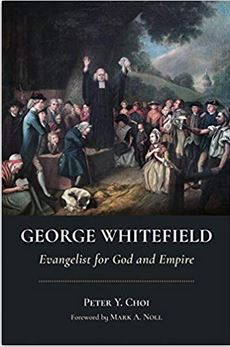So it’s time for the kids to go back to school. My daughter started public school for the first time about two weeks ago, my boy started his homeschool coop last week, and our “Lastname Christian Academy” officially starts the Monday after Labor Day. For today’s Top Ten Tuesday Topic (hosted by That Artsy Reader Girl) we are doing a back to school edition. This week, I will be posting some of my favorite nonfiction books. They’re in no particular order.
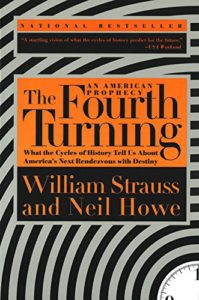 The Fourth Turning has got to be one of my favorite nonfiction books. It was my favorite book that I read for the first time in 2016. It came out in 2007, but it’s very relevant today. I just love how this book describes how history runs in cycles, and it is so amazing how this book is laid out. If you like this book, Pendulum is also a good book with the same idea, but I liked this one immensely better, even though this one is older.
The Fourth Turning has got to be one of my favorite nonfiction books. It was my favorite book that I read for the first time in 2016. It came out in 2007, but it’s very relevant today. I just love how this book describes how history runs in cycles, and it is so amazing how this book is laid out. If you like this book, Pendulum is also a good book with the same idea, but I liked this one immensely better, even though this one is older.
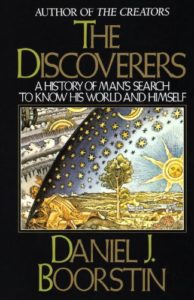 I first read The Discoverers by Daniel J. Boorstin in college, and not for an assignment; it just looked interesting. The book details the history of discovery, from things as simple as the clock and the calendar to more modern inventions, like navigation. I’ve read this book twice, but it’s been a while since I’ve read it last. I’ve also read a few of his other books; they’re also outstanding. A couple of years ago I was able to find a copy of The Creators in hardback at a library book sale and I had to get that one too, even though I had already read it.
I first read The Discoverers by Daniel J. Boorstin in college, and not for an assignment; it just looked interesting. The book details the history of discovery, from things as simple as the clock and the calendar to more modern inventions, like navigation. I’ve read this book twice, but it’s been a while since I’ve read it last. I’ve also read a few of his other books; they’re also outstanding. A couple of years ago I was able to find a copy of The Creators in hardback at a library book sale and I had to get that one too, even though I had already read it.
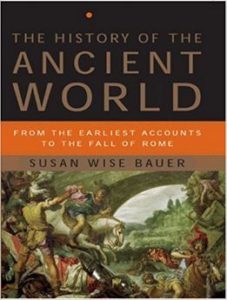 If you are a homeschooler, then you are probably familiar with Susan Wise Bauer’s Story of the World series (they’re very popular). She also has written a set of history books for adults: The History of the _______ World (she has books for the Ancient World, Medieval World, and Renaissance World). They’re all great. If you think you know history because you studied it in high school, you probably are missing a lot. Some of the stories in these books are quite brutal, and I don’t think that they’d get taught in high school just for the brutality factor alone (history can be pretty nasty at times). These are really thick books, and you probably won’t finish it in a day or two like you can with most novels, but you can learn a lot from them.
If you are a homeschooler, then you are probably familiar with Susan Wise Bauer’s Story of the World series (they’re very popular). She also has written a set of history books for adults: The History of the _______ World (she has books for the Ancient World, Medieval World, and Renaissance World). They’re all great. If you think you know history because you studied it in high school, you probably are missing a lot. Some of the stories in these books are quite brutal, and I don’t think that they’d get taught in high school just for the brutality factor alone (history can be pretty nasty at times). These are really thick books, and you probably won’t finish it in a day or two like you can with most novels, but you can learn a lot from them.
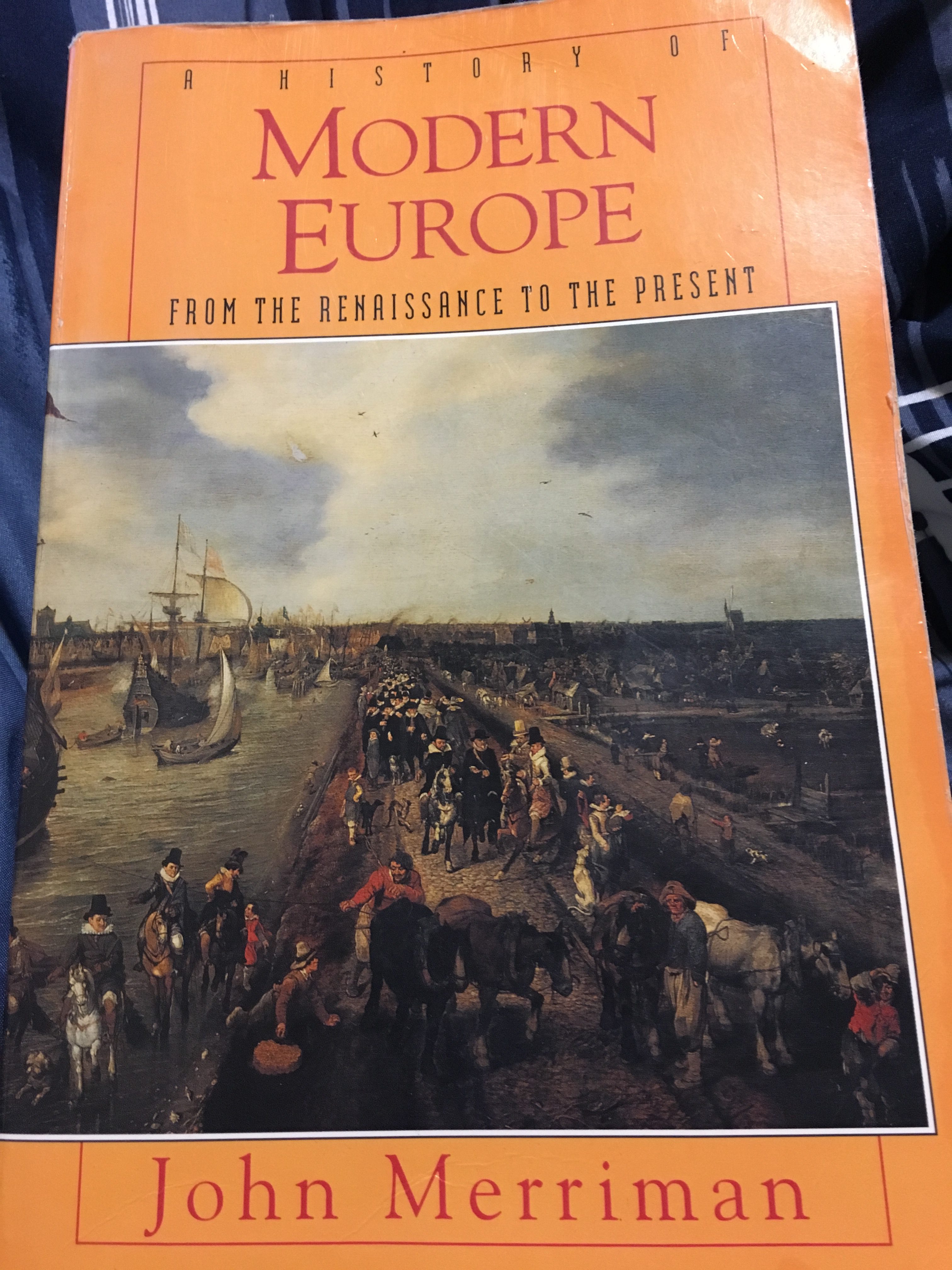 One of my favorite history books is A History of Modern Europe by John Merriman. I bought the third edition (pictured in the photo here) because if you buy the brand new edition, it’s really expensive. There’s over 1400 pages of text here, so you won’t get this one read in one sitting either, but the book is very readable.
One of my favorite history books is A History of Modern Europe by John Merriman. I bought the third edition (pictured in the photo here) because if you buy the brand new edition, it’s really expensive. There’s over 1400 pages of text here, so you won’t get this one read in one sitting either, but the book is very readable.
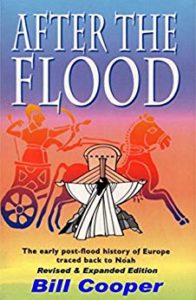 After the Flood by Bill Cooper is a lot shorter and a lot less academic, but I found it to be really interesting nonetheless. I think it’s fairly typical for people living today to think of the ancient world being full of unintelligent people who didn’t know much, but I’m pretty sure that was not the case. This book talks about some of the ancient records that shows that more than likely, ancient people in places like modern-day Britain already had knowledge of the Judeo-Christian God before the arrival of the Roman missionaries that started showing up there after the time of Jesus. I found the ancient geneological records to be fascinating.
After the Flood by Bill Cooper is a lot shorter and a lot less academic, but I found it to be really interesting nonetheless. I think it’s fairly typical for people living today to think of the ancient world being full of unintelligent people who didn’t know much, but I’m pretty sure that was not the case. This book talks about some of the ancient records that shows that more than likely, ancient people in places like modern-day Britain already had knowledge of the Judeo-Christian God before the arrival of the Roman missionaries that started showing up there after the time of Jesus. I found the ancient geneological records to be fascinating.
 I read The History of the Franks by Gregory of Tours in college, but I also reread it once after that. The stories here are pretty fascinating. It’s hard to tell at times what in this book is real and what was exaggeration. Whether some of the tales are made up or not, what is apparent is that there was corruption in the early medieval period just as much as there is now.
I read The History of the Franks by Gregory of Tours in college, but I also reread it once after that. The stories here are pretty fascinating. It’s hard to tell at times what in this book is real and what was exaggeration. Whether some of the tales are made up or not, what is apparent is that there was corruption in the early medieval period just as much as there is now.
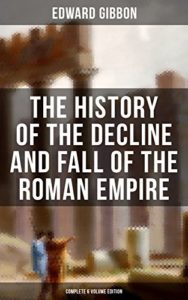 If you’re looking for a reading challenge, then you might want to try tackling Gibbon’s The History of the Decline and Fall of the Roman Empire (unabridged edition). My Kindle says that I still have about 75 hours left in this book, and I’m 2 % of the way through (probably part of that is chapter indexes though). I read the abridged edition years ago, but I’d like to one day read the entire thing, because there’s some fairly interesting stories here (although the reading is not the easiest).
If you’re looking for a reading challenge, then you might want to try tackling Gibbon’s The History of the Decline and Fall of the Roman Empire (unabridged edition). My Kindle says that I still have about 75 hours left in this book, and I’m 2 % of the way through (probably part of that is chapter indexes though). I read the abridged edition years ago, but I’d like to one day read the entire thing, because there’s some fairly interesting stories here (although the reading is not the easiest).
There are several different Kindle editions of this book floating around, some free, some you have to pay for, but I’ve found that this particular edition is the best, because 1) the footnotes are all there and linked, and 2) all six volumes of this book are all together. I’ve downloaded a few copies of this book and have decided on reading this particular edition because it seems to have the best formatting.
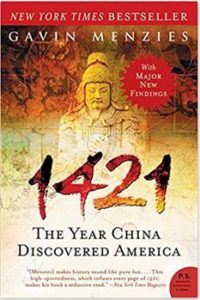 I love 1421: The Year China Discovered America, because there is so much about the ancient and even medieval world that we don’t understand. If you like the History Channel shows where they go look at unexplained evidence and try to figure out what it all means, then you might be interested in reading this book too. I’ve always wanted to read his other book, 1434: The Year a Magnificent Chinese Fleet Sailed to Italy and Ignited the Renaissance, but I could never remember the title, but I finally found it. Now that it’s on my Goodreads TBR, I’m more likely to read it.
I love 1421: The Year China Discovered America, because there is so much about the ancient and even medieval world that we don’t understand. If you like the History Channel shows where they go look at unexplained evidence and try to figure out what it all means, then you might be interested in reading this book too. I’ve always wanted to read his other book, 1434: The Year a Magnificent Chinese Fleet Sailed to Italy and Ignited the Renaissance, but I could never remember the title, but I finally found it. Now that it’s on my Goodreads TBR, I’m more likely to read it.
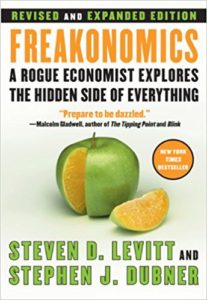 So far, all the books I’ve put on this list have been history books, which is most of the nonfiction that I read (well, that and political fiction) but I do read whatever nonfiction looks interesting. Freakonomics is a thought-provoking non-history nonfiction book. It explores the economic factors behind things like drug dealing, danger, abortion, and other subjects, but not in a boring way. I haven’t read this book in a long time, but now that I’m talking about it here, I want to read it again.
So far, all the books I’ve put on this list have been history books, which is most of the nonfiction that I read (well, that and political fiction) but I do read whatever nonfiction looks interesting. Freakonomics is a thought-provoking non-history nonfiction book. It explores the economic factors behind things like drug dealing, danger, abortion, and other subjects, but not in a boring way. I haven’t read this book in a long time, but now that I’m talking about it here, I want to read it again.
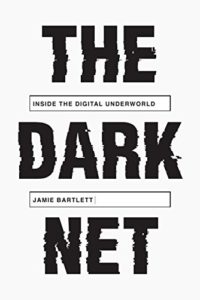 Wildcard seems to be one of the most anticipated books of the year, and if you’ve read Warcross already, then you probably remember that there’s a place that Emika goes to that is the dark side of Warcross. It’s actually based on a real thing called The Dark Net. While I was reading Warcross, I was reminded about the things that I read about in this book, including the Assassination Market (which is a real thing). If you find those sorts of dark things interesting, you might be curious to read this book. It’s a fairly easy and enjoyable read.
Wildcard seems to be one of the most anticipated books of the year, and if you’ve read Warcross already, then you probably remember that there’s a place that Emika goes to that is the dark side of Warcross. It’s actually based on a real thing called The Dark Net. While I was reading Warcross, I was reminded about the things that I read about in this book, including the Assassination Market (which is a real thing). If you find those sorts of dark things interesting, you might be curious to read this book. It’s a fairly easy and enjoyable read.
So that’s this week’s Back to School edition of Top Ten Tuesday. Stay tuned for next week where I talk about books that that were made into movies, and which one was better (because I don’t really watch too many movies or TV shows and I’m certain that most of you aren’t interested in watching something like Кухня, so I’m straying off topic a little).
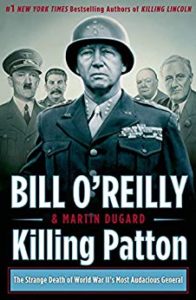
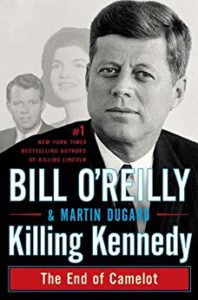
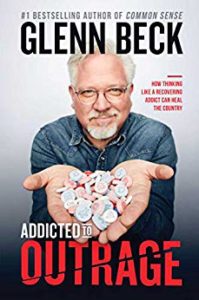





 I read
I read 



